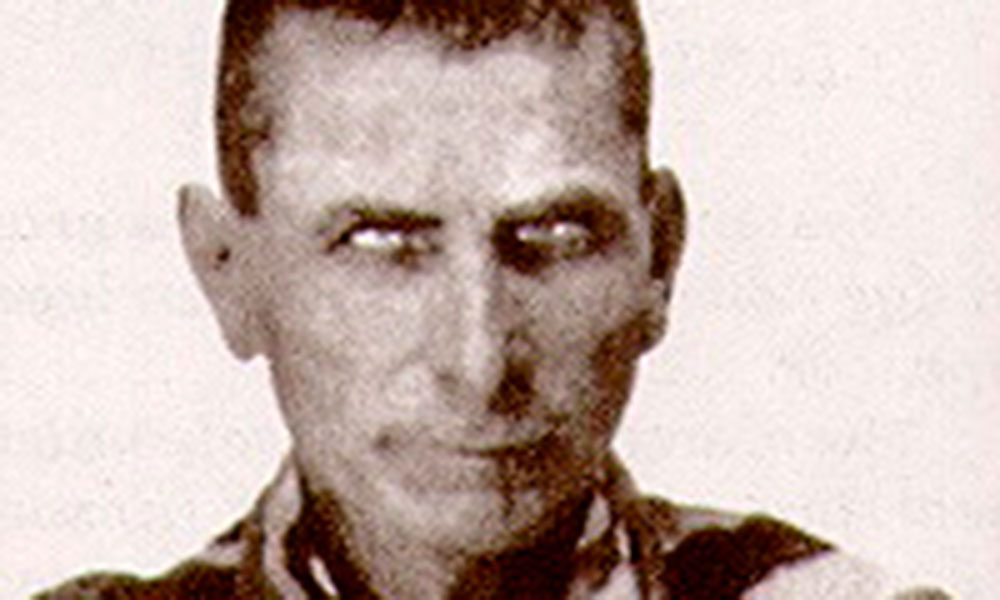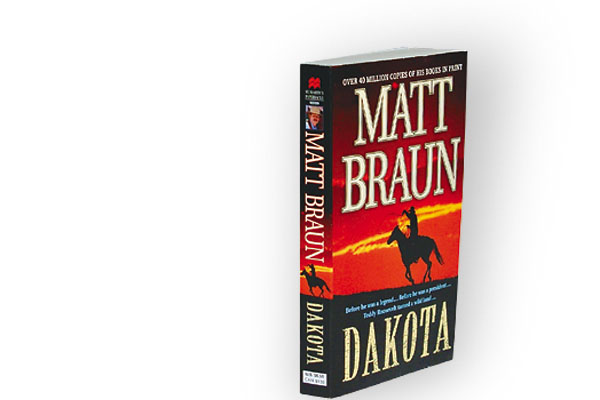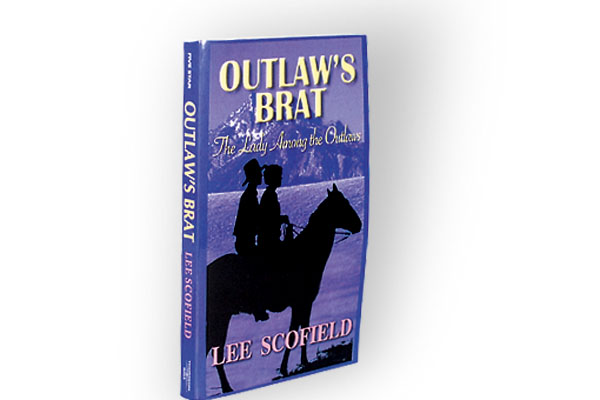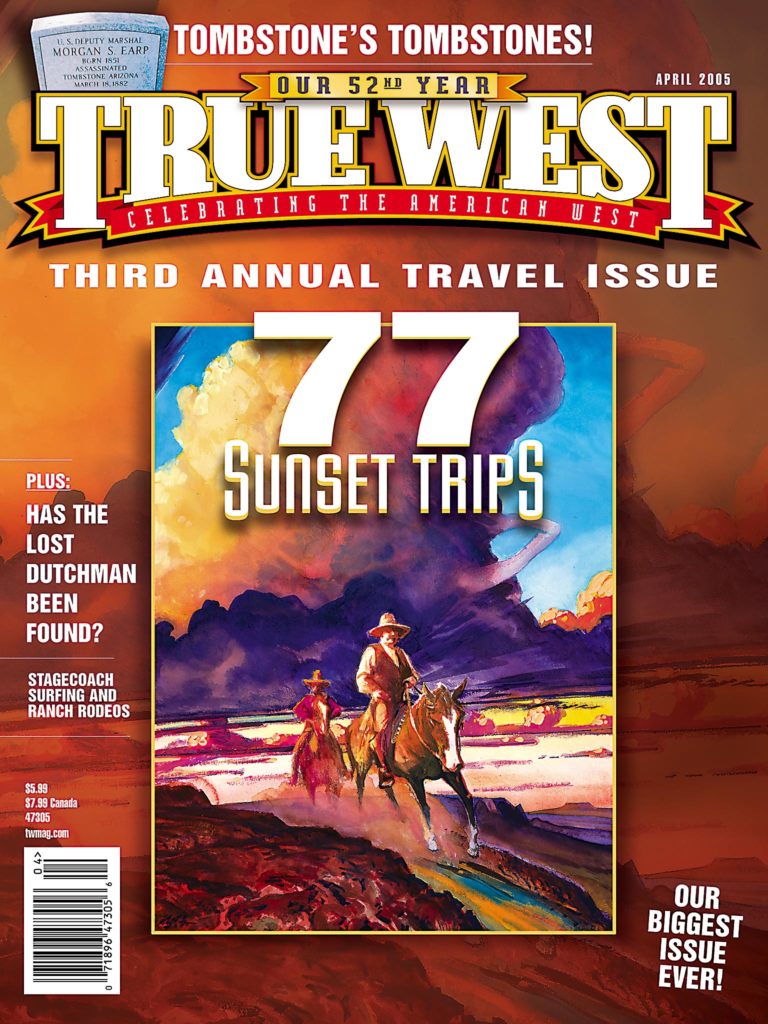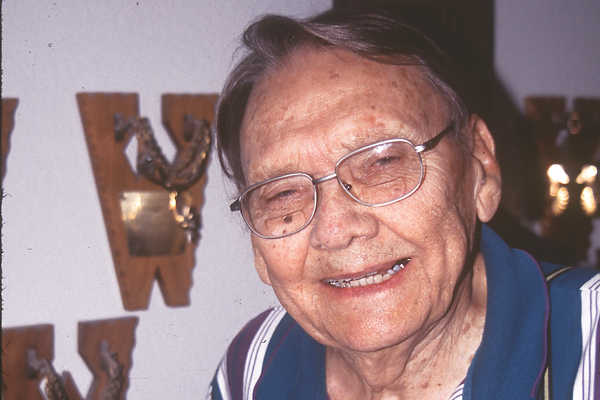 “I’m not writing anything now,” Fred Grove says from his Tucson, Arizona, home.
“I’m not writing anything now,” Fred Grove says from his Tucson, Arizona, home.
“I feel kind of lost, but I think it’s just as well to hang ’em up.”
Hanging ’em up? Fans of Western fiction might also feel lost. After all, Grove has won five Spur Awards from Western Writers of America (WWA), plus two Western Heritage Wrangler Awards from the National Cowboy and Western Heritage Museum. In 1963, he was given the Levi Strauss Saddleman Award from WWA, becoming the third writer to earn the honor for lifetime achievement, following Henry W. Allen (alias Will Henry) and Jeanne Williams. The list of honors goes on and on.
On July 4, Grove turns 92, and as wife Lucile says, he has earned his retirement.
That doesn’t mean Grove fans won’t be able to find anything new. Five Star has three more titles in the works. The Vanishing Raiders, a short story collection, is due out in May. Grove’s first novel, Trouble Hunter, which he never submitted until last year, will follow in October 2006. And another short story collection, Savage Land, is scheduled for January 2007.
Grove’s novels cover a wide range of topics, including the Indian Wars (Comanche Captives), buffalo slaughter (The Buffalo Runners), Civil War (The Spring of Valor) and contemporary horse racing (A Distance of Ground). Yet, he’s often found himself drawn to the greed-motivated Osage Indian murders during the 1920s’ oil boom, and with good reason.
In 1923, a late-night explosion rocked Grove’s house in Fairfax, Oklahoma. The next morning, he learned that nitroglycerin had been used to destroy an Osage’s house, killing two people and fatally injuring a third.
“My mother told me not to go over there, but I sneaked off, and was sorry I did,” Grove recalls. “There were pieces of flesh all over, and the house was just a pile of sticks. That stuck with me. I still feel mad about that, but justice was finally served.”
The slew of murders became a national scandal, and the mastermind, William Hale, eventually was tried and sent to prison.
“I’m not a hater,” Grove says. “I just think Bill Hale was disgusting. I used to see that ol’ boy drive by in a red Buick roadster when I was a kid. That son of a bitch, I get mad every time I think about him.”
Grove touched on the murders in Warrior Road and Drums Without Warriors before chronicling the events in what he calls a “fact novel,” The Years of Fear, his favorite book. “This is close to my beginnings as a writer,” he says, “my feelings, my heart.”
His stories always were personal, solidly grounded in fact. While he often relied on his newspaper background to research topics, many of his stories came naturally. He is of Osage and Sioux descent; his grandfather was run off the reservation after “the wrong horse followed him home,” and his father cowboyed for much of his life, even taking herds from Texas to the northern pastures. “I thought later, ‘Why in the hell didn’t I ask Dad about all that?’” Grove says. “But I never asked him, and he never really mentioned it.”
Other novels have included Spur Award winners The Great Horse Race and Match Race, plus Flame of the Osage, Into the Far Mountains, The Child Stealers and A Far Trumpet.
“It’s funny where your ideas come from,” says Grove, as he recalls a story that wound up in his novel Buffalo Spring.
“This Indian boy came by my house in Norman. He had read about my writing and wanted me to have this story: During WWII, he was living around Fort Sill and his grandmother wanted to see the buffalo again. So he saved his gas coupons and drove her to the Wichita Mountains. They stopped the car, and his grandmother got out and walked to the fence, and began uttering this high-pitched chant, and the buffalo turned and slowly began walking toward her.”
Stories like that are why Fred Grove’s legacy will endure.
“I’ve always enjoyed writing Western stories,” he says. “I hope people find mine interesting and maybe learn a little bit about people, what people are like.”


